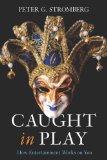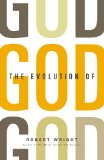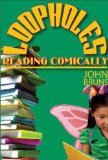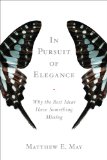June 21, 2009
Caught in Play: How Entertainment Works on You by Peter Stromberg, Professor of Anthropology at the University of Tulsa (Stanford University Press, 2009).

Product description from the publisher:
Most of us have become so immersed in a book or game or movie that the activity temporarily assumed a profound significance and the outside world began to fade. Although we are likely to enjoy these experiences in the realm of entertainment, we rarely think about what effect they might be having on us. Precisely because it is so pervasive, entertainment is difficult to understand and even to talk about.
To understand the social role of entertainment, Caught in Play looks closely at how we engage entertainment and at the ideas and practices it creates and sustains. Though entertainment is for fun, it does not follow that it is trivial in its effect on our lives. As this work reveals, entertainment generates commitments to values we are not always willing to acknowledge: values of pleasure, self-indulgence, and consumption.
The book has a website.
Comments (0)
- culture,new books
June 6, 2009

Robert Wright, author of Nonzero: The Logic of Human Destiny and The Moral Animal: Why We Are, the Way We Are: The New Science of Evolutionary Psychology, has just published The Evolution of God (Little, Brown, 2009)…
Product description from the publisher:
In this sweeping narrative that takes us from the Stone Age to the Information Age, Robert Wright unveils an astonishing discovery: there is a hidden pattern that the great monotheistic faiths have followed as they have evolved. Through the prisms of archaeology, theology, and evolutionary psychology, Wright’s findings overturn basic assumptions about Judaism, Christianity, and Islam, and are sure to cause controversy. He explains why spirituality has a role today, and why science, contrary to conventional wisdom, affirms the validity of the religious quest. And this previously unrecognized evolutionary logic points not toward continued religious extremism, but future harmony.
Nearly a decade in the making, The Evolution of God is a breathtaking re-examination of the past, and a visionary look forward.
The website for the book has excerpts and more.
Comments (0)
- culture,new books,psychology
May 28, 2009

Loopholes: Reading Comically by John Bruns (Transaction Publishers, 2009)
Product description from the publisher:
Much writing about comedy in the last twenty years has only trivialized comedy as cheap or as temporary distraction from things that “really matter.” It has either presented exhaustive taxonomies of kinds of humor—like wit, puns, jokes, humor, satire, irony—or engaged in pointless political endgames, moral dialogues, or philosophical perceptions. Comedy is rarely presented as a mode of thought in its own right, as a way of understanding, not something to be understood. Bruns’ guiding assumption is that comedy is not simply a literary or theatrical genre, to be differentiated from tragedy or from romance, but a certain way of disclosing, perhaps undoing, the way the world is organized. When we view the world in terms of what is incompatible, we are reading comically. In this sense, comedy exists outside the alternatives of tragic and comic. It is a form of relief from the difficulties of everyday life. Loopholes argues that trivialization of comedy comes from fear that it will address our anxieties with honesty—and it is this truth that scares us. John Bruns discusses comedy as a mode of thought with a cognitive function. It is a domain of human understanding, a domain far more troubling and accessible than we care to acknowledge. To “read comically” we must accept our fears. If we do so, we will realize what Bruns refers to as the most neglected premise of comedy, that the world itself is a loophole—both incomplete and limitless.
Comments (0)
- cognitive science,culture,happiness
May 19, 2009

In Pursuit of Elegance: Why the Best Ideas Have Something Missing by Matthew May (Broadway Business, 2009)
Product description from the publisher:
What made the Sopranos finale one of the most-talked-about events in television history?
Why is sudoku so addictive and the iPhone so irresistible?
What do Jackson Pollock and Lance Armstrong have in common with theoretical physicists and Buddhist monks?
Elegance.
In this thought-provoking exploration of why certain events, products, and people capture our attention and imaginations, Matthew E. May examines the elusive element behind so many innovative breakthroughs in fields ranging from physics and marketing to design and popular culture. Combining unusual simplicity and surprising power, elegance is characterized by four key elements—seduction, subtraction, symmetry, and sustainability. In a compelling, story-driven narrative that sheds light on the need for elegance in design, engineering, art, urban planning, sports, and work, May offers surprising evidence that what’s “not there” often trumps what is.
In the bestselling tradition of The Tipping Point, Made to Stick, and The Black Swan, In Pursuit of Elegance will change the way you think about the world.
See also: book website
Comments (1)
- consciousness,culture,happiness,new books,psychology,self
May 17, 2009

Catching Fire: How Cooking Made Us Human by Harvard primatologist Richard Wrangham (Basic Books, 2009) (which also has a Kindle edition)
Product Description from the publisher
Until two million years ago, our ancestors were apelike beings the size of chimpanzees. Then Homo erectus was born and we became human. What caused this extraordinary transformation?
In this stunningly original book, renowned primatologist Richard Wrangham argues that cooking created the human race. At the heart of Catching Fire lies an explosive new idea: The habit of eating cooked rather than raw food permitted the digestive tract to shrink and the human brain to grow, helped structure human society, and created the male-female division of labor. As our ancestors adapted to using fire, humans emerged as “the cooking apes.”
A groundbreaking new theory of evolution, Catching Fire offers a startlingly original argument about how we came to be the social, intelligent, and sexual species we are today.
See also: Scientific American interview – “Evolving bigger brains through cooking”
“The evolution of cooking” at Edge
Comments (0)
- culture,human evolution,new books







